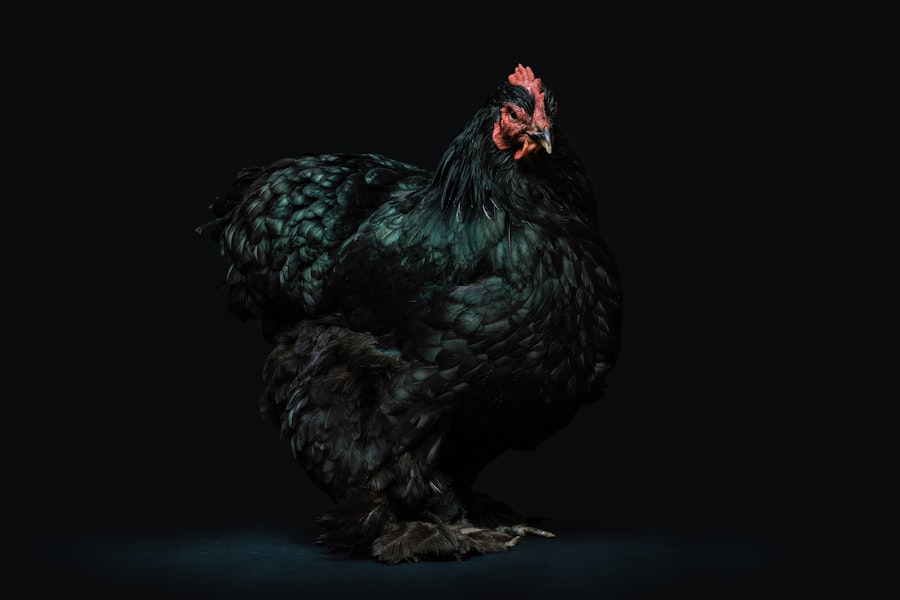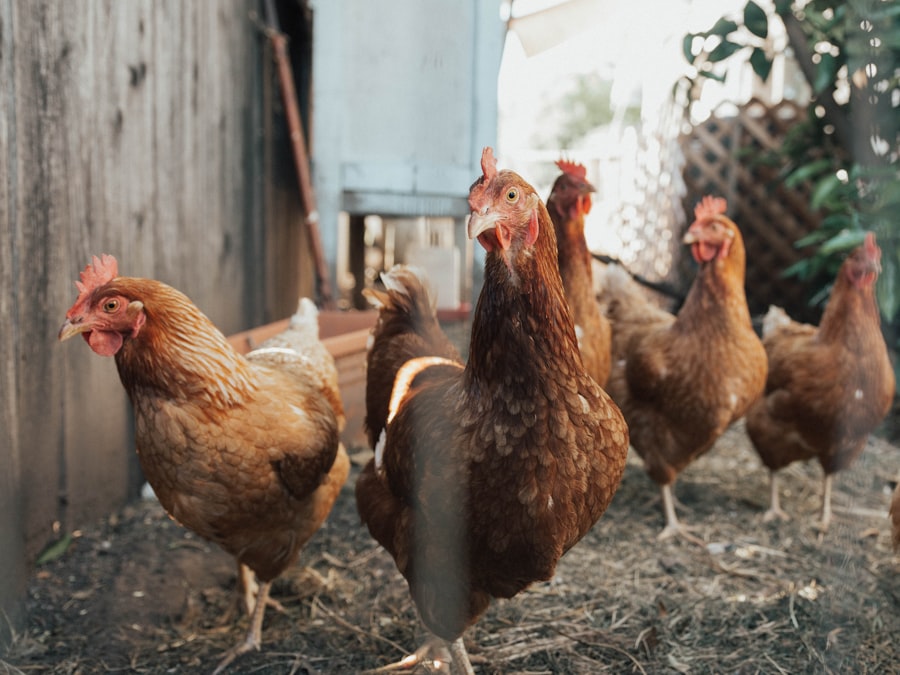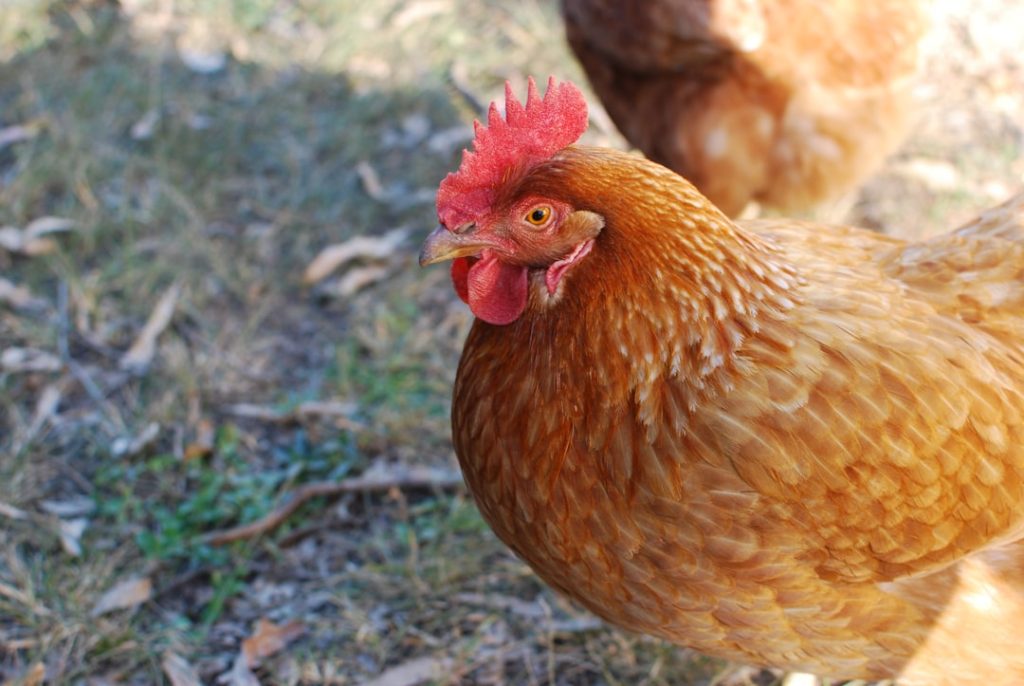When raising chickens, providing an appropriate environment is crucial for their well-being and egg production. Key factors to consider include space, shelter, and access to food and water. Chickens require sufficient space to move and exhibit natural behaviors.
The recommended space allocation is 2-3 square feet per chicken inside the coop and 8-10 square feet per chicken in the outdoor run. Adequate space helps reduce stress and aggression within the flock. A secure shelter is essential to protect chickens from weather conditions and predators.
The coop should be well-ventilated, insulated, and equipped with roosting bars and nesting boxes. For the outdoor run, a sturdy fence is necessary to keep predators out and chickens contained. A covered area within the run offers protection from rain and sun.
Proper ventilation, temperature control, and protection from the elements are vital for maintaining chicken health and productivity. By addressing these environmental factors, chicken owners can create a safe and comfortable living space for their flock.
Table of Contents
Key Takeaways
- Choose a spacious and well-ventilated environment for your chickens to thrive
- Build a secure coop and run to protect your chickens from predators and provide shelter
- Provide a balanced diet and clean water for your chickens to ensure their health and well-being
- Offer entertainment and enrichment such as perches and toys to keep your chickens active and happy
- Implement safety measures to protect your chickens from predators and keep them secure
- Monitor your chickens’ health regularly and address any issues promptly
- Collect and use chicken eggs for cooking and baking, ensuring proper storage and handling for freshness
Building a Coop and Run
Coop Size and Materials
When building a coop, it’s essential to consider the size and materials used. The size of the coop will depend on the number of chickens you plan to keep, with a minimum of 2-3 square feet of space per chicken. This will ensure they have enough room to move around comfortably and engage in natural behaviors. Durable and weather-resistant materials such as wood, metal, and plastic are ideal for building a coop.
Coop Design and Features
The design of the coop should include features that promote ventilation, comfort, and egg-laying. Windows or vents provide airflow, while roosting bars allow chickens to perch comfortably. Nesting boxes are also a must-have for egg-laying hens. A well-designed coop will keep your chickens happy and healthy.
Run Design and Enrichment
A run should provide ample space for chickens to roam and forage, with secure fencing to keep predators out and chickens in. A covered area will protect them from the elements. To keep chickens entertained and engaged, it’s essential to provide enrichment such as perches, dust bathing areas, and toys. A well-designed run will keep your chickens active and stimulated.
By carefully considering the size, materials, design, and enrichment of both the coop and run, you can create a safe and comfortable environment for your chickens to thrive in.
Feeding and Watering Your Chickens

Feeding and watering your chickens is an essential part of keeping them healthy and happy. When it comes to feeding, it’s important to provide a balanced diet that meets their nutritional needs. Chickens require a diet that is high in protein, vitamins, and minerals to support egg production and overall health.
A good quality commercial chicken feed is a great option as it provides all the essential nutrients that chickens need. Additionally, you can supplement their diet with kitchen scraps, fruits, vegetables, and grains. It’s important to avoid feeding them foods that are high in salt, sugar, or fat, as these can be harmful to their health.
Providing access to fresh water is also crucial for keeping your chickens healthy. Chickens require clean water at all times to stay hydrated and maintain their overall health. When it comes to feeding and watering your chickens, it’s important to provide access to food and water at all times.
This can be achieved by using feeders and waterers that are designed specifically for chickens. Additionally, it’s important to regularly clean and refill their feeders and waterers to ensure that they have access to fresh food and water. Overall, feeding and watering your chickens involves providing a balanced diet that meets their nutritional needs and ensuring that they have access to fresh water at all times.
Providing Entertainment and Enrichment
Chickens are intelligent and curious animals that require mental stimulation and enrichment to thrive. Providing entertainment and enrichment for your chickens is an important part of keeping them happy and healthy. There are several ways to provide entertainment and enrichment for your chickens, including providing access to natural materials, toys, and opportunities for foraging.
One way to provide entertainment for your chickens is by providing access to natural materials such as branches, logs, and rocks. These materials can be used for perching, scratching, and dust bathing, which are natural behaviors for chickens. Additionally, providing toys such as hanging treats or puzzle feeders can help keep your chickens entertained and engaged.
Foraging is another important aspect of providing enrichment for your chickens. Allowing them access to a variety of plants, insects, and other natural materials can help satisfy their natural instincts and keep them mentally stimulated. You can create a foraging area in their outdoor run by scattering treats or hiding food items for them to find.
Overall, providing entertainment and enrichment for your chickens involves providing access to natural materials, toys, and opportunities for foraging. This will help keep your chickens mentally stimulated and engaged, leading to happier and healthier birds.
Keeping Your Chickens Safe from Predators
Keeping your chickens safe from predators is crucial for their well-being. There are several common predators that pose a threat to chickens, including foxes, raccoons, hawks, and snakes. It’s important to take proactive measures to protect your flock from these predators.
One way to keep your chickens safe from predators is by securing their coop and run with sturdy fencing. The fencing should be buried at least 12 inches into the ground to prevent predators from digging underneath it. Additionally, it’s important to cover the top of the run with wire mesh or netting to prevent aerial predators such as hawks from swooping in.
Another important measure for protecting your chickens from predators is by providing secure housing at night. The coop should be equipped with latches or locks on doors and windows to prevent predators from gaining access. Additionally, installing motion-activated lights or alarms can help deter nocturnal predators such as raccoons.
It’s also important to regularly inspect the perimeter of the coop and run for any signs of damage or potential entry points for predators. By taking proactive measures such as securing fencing, providing secure housing at night, and regularly inspecting the perimeter for signs of damage, you can help keep your chickens safe from predators.
Monitoring and Maintaining Chicken Health

Observing Behavior
One way to monitor the health of your chickens is by observing their behavior on a daily basis. Healthy chickens will be active, alert, and have a good appetite. Any changes in behavior such as lethargy or decreased appetite could be a sign of illness or injury.
Veterinary Care
Regular veterinary care is also important for maintaining the health of your chickens. It’s important to establish a relationship with a poultry veterinarian who can provide routine check-ups and vaccinations for your flock. Additionally, it’s important to seek veterinary care at the first sign of illness or injury.
Maintaining a Clean Environment
Maintaining a clean living environment is crucial for preventing disease and maintaining the health of your flock. This includes regularly cleaning the coop and run, providing clean bedding material, and regularly removing droppings. Additionally, it’s important to practice good biosecurity measures such as limiting exposure to wild birds or other poultry flocks.
By taking proactive measures to monitor their health and provide proper care, you can help ensure that your chickens remain healthy and productive.
Collecting and Using Chicken Eggs
Collecting and using chicken eggs is one of the most rewarding aspects of raising chickens. Fresh eggs from your own flock are not only delicious but also nutritious. There are several key factors to consider when it comes to collecting and using chicken eggs, including proper egg handling, storage, and utilization.
When it comes to collecting eggs from your flock, it’s important to do so on a regular basis to prevent them from being damaged or eaten by the hens. Eggs should be collected at least once a day, preferably in the morning when they are still fresh. It’s important to handle eggs with care to prevent cracking or breaking them.
Proper egg storage is crucial for maintaining their freshness and quality. Eggs should be stored in a cool place with consistent temperature such as a refrigerator. It’s important to store eggs with the pointed end down in an egg carton or container to help maintain their quality.
Using chicken eggs in cooking is a great way to enjoy the fruits of your labor. Fresh eggs can be used in a variety of recipes such as omelets, quiches, baked goods, and more. Additionally, you can also preserve eggs by freezing or pickling them for later use.
Overall, collecting and using chicken eggs involves proper egg handling, storage, and utilization. By taking proper care when collecting eggs from your flock and storing them correctly, you can enjoy delicious fresh eggs that are both nutritious and versatile in cooking.
If you’re interested in learning more about keeping chickens in Minecraft, you might also want to check out this article on keeping guinea fowl and chickens together. It provides valuable information on how to successfully integrate different types of poultry in the same living space.
FAQs
What are the benefits of keeping chickens in Minecraft?
Keeping chickens in Minecraft can provide players with a sustainable source of food, as chickens drop eggs which can be used to make food items. Additionally, chickens can be bred to create more chickens, providing a steady supply of resources.
How do you obtain chickens in Minecraft?
Chickens can be obtained by finding and capturing them in the wild, or by hatching eggs that are dropped by existing chickens. Players can also use spawn eggs to create chickens in their world.
How do you care for chickens in Minecraft?
To care for chickens in Minecraft, players should ensure that they have a suitable enclosure with enough space for the chickens to move around. Chickens also require a regular supply of seeds to breed and grow, as well as a source of water to keep them hydrated.
What are some common challenges when keeping chickens in Minecraft?
Some common challenges when keeping chickens in Minecraft include protecting them from predators such as wolves and ocelots, as well as ensuring that they have enough space and resources to thrive. Additionally, players may need to manage the population of chickens to prevent overcrowding in their enclosure.
What are some tips for keeping chickens in Minecraft?
Some tips for keeping chickens in Minecraft include building a secure enclosure to protect them from predators, providing a regular supply of seeds for breeding, and ensuring that they have access to water. Players can also use fences and gates to create separate areas for different groups of chickens.
Meet Walter, the feathered-friend fanatic of Florida! Nestled in the sunshine state, Walter struts through life with his feathered companions, clucking his way to happiness. With a coop that’s fancier than a five-star hotel, he’s the Don Juan of the chicken world. When he’s not teaching his hens to do the cha-cha, you’ll find him in a heated debate with his prized rooster, Sir Clucks-a-Lot. Walter’s poultry passion is no yolk; he’s the sunny-side-up guy you never knew you needed in your flock of friends!







